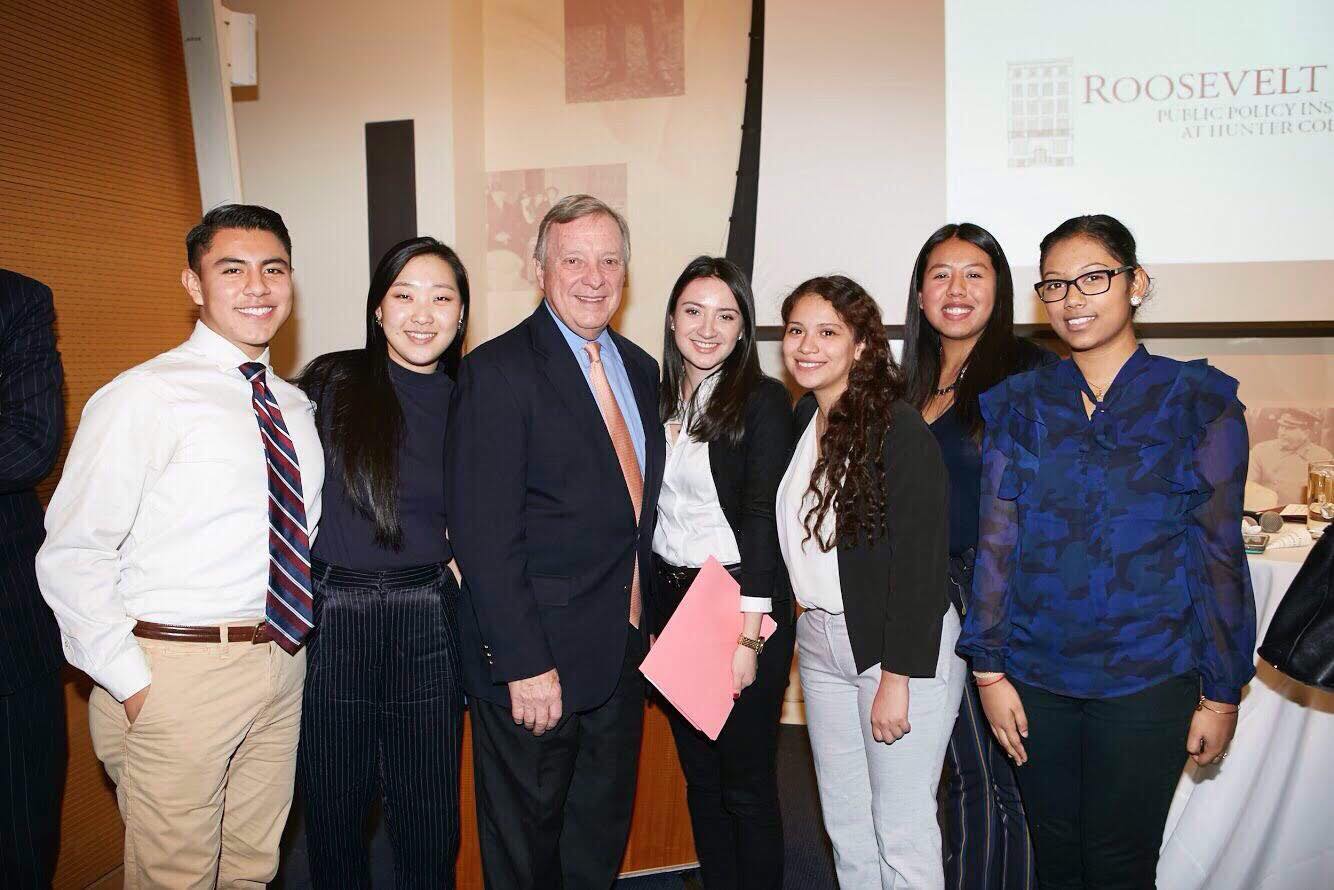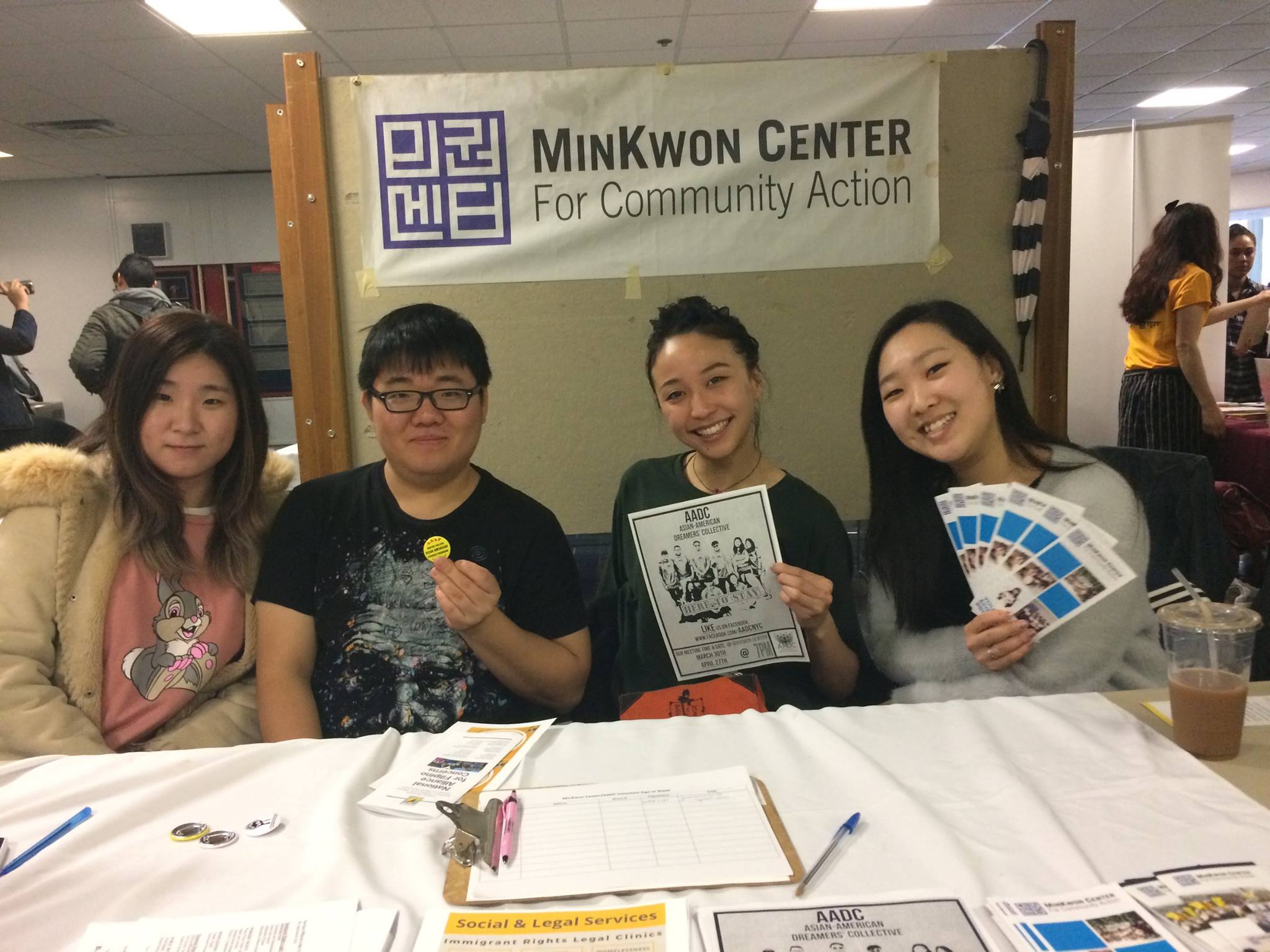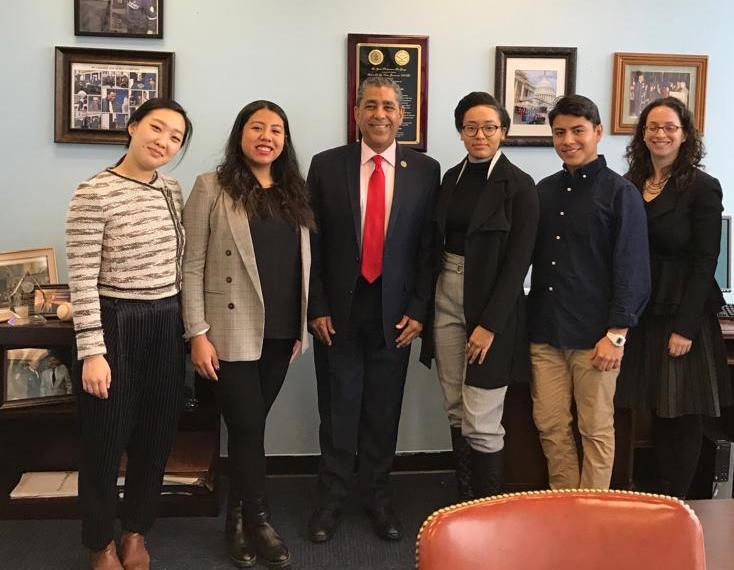Ester
Korean Post-Graduate Working at a Boutique Consulting Firm

 Tell me a little about your journey to the United States.
Tell me a little about your journey to the United States.
So, I was born in Brazil. My parents– my mom brought me to the United States when I was about five years old. We had family that settled in the United States beforehand, so my aunt and grandma were here. [M]y mom was really excited about America at that point because there was this whole idea that America was a place of opportunity and it has better in education. So, I was brought to United States with my sisters (my two sisters) and we lived here. We came on a visitor’s visa at first and my parents thought they were going through the proper process– immigration process. However, they were actually cheated ans scammed by instead by someone who pretended to do the paperwork for them… Eventually that person took their money and we fell out of status and that is how my family became undocumented.
What was your major and why did you choose that specific major(s)?
I double majored in Political Science and Urban Studies and I had minors in Economics and Public Policy. So, I started off my college career as a Political Science major. I think a lot of the classes I have taken were actually geared towards understanding immigration policy and understanding who I was as a person or my identity as a Korean-American or immigrant or somebody from NYC, like Queens, [and] having that diversity. For Urban Studies, I got really into housing policy, so the whole idea of affordable housing, mandatory inclusion housing, and how laws and policies can influence where and how people live. Then, I got into what I am doing now development work and building affordable housing that allows low-income people to apply for these types of housing to actually keep communities in NYC.
 How would you describe your college experience?
How would you describe your college experience?
But just in college I remember being tired all the time. That’s the thing like I wanted to do well in school, but I also had to work cause I had to pay for my housing and just living expenses. I had unique experience because my program– I was in the Macaulay Program– they provided me a scholarship for school, but my parents and my sisters they were not in any position for me to live with them at the time, so, I dormed. Even if I dormed, I had to pay for, you know, books, transportation, food costs because there is no meal plan. What else is there? Just like the general cost of housing. But I wanted to do a way where like it will further my career and my academics. So I took on internships and a retail job and I was trying to do well in school. [Therefore], I was tired all the time and I think because of that I didn’t get to fully dive into the college, the clubs, and the programs there. That actually changed in my junior and senior year of college, where there were a special scholarship for immigrants– specifically immigrants– because a very rich person had donated money to the school and that is where I started feeling a little more of a community sense. [This is when], I was able to one get paid for doing the type of research I wanted to do and also connect with a cohort because it was a fellowship. So, through that fellowship I met a lot of college staff who basically provided more opportunities and got me more invested in the school and the school’s programming; where as in the past I found more internships and externships outside of the college and so when it was financially feasible that is when I really felt connected to the school.
Was there anything or anyone that you can say helped you feel included?
I’ll start with college: there was one person who worked in the President's office who kind of remembered me. But that was because I was very vocal about my status and where my ambitions were through fellowship. So through that person, I think she presented a lot of opportunities for me to be in leadership positions in the college and host college-related events. I [also] volunteered at the MinKwon Center for Community Action in Flushing Queens. That was a group that really helped me come out of my shell as undocumented person– as a person with DACA. They showed me as an Asian-American why it's important to step up [and] how it affects other people around us when I do step up. So they're the ones that helped me really like break out of my shell and be more politically and socially aware of where I stand in the world and how I want to present myself in the world.
 Where are you currently working and where do you see yourself in the future?
Where are you currently working and where do you see yourself in the future?
So now I am on development consultant at a boutique consulting firm in the city. My firm works with a lot of nonprofits to build affordable and supportive housing. Supportive housing meaning that there is case management and social services directly in the building,[so that], people with special needs can access. [Examples of these] people [are those] who are homeless, mentally or physically ill, physically disabled, domestic violence survivors, and low-income New Yorkers in general. We help nonprofits finance their project– whether that means getting government grants or loans or bank loans; we help structure and budget their project and do project management for them. That's where I'm now and I see myself here for quite a while, since development itself is my career.
What is one advice you’d give an undocumented high school student?
I think the person who endures wins. So like, at this point in time as an undocumented person, where you have all these financial and social barriers and on top of that the political slandering about you, it can get very personal. Everything that’s on the news, it just feels like they're talking about you, which I mean a sense they are, but I think it is important to keep moving. There was a person in my college who said we don't pause. [Therefore], it's very important not to pause your life. [Moreover], sometimes, especially for me because at one point and I was working retail jobs and working little jobs here and there– it is really easily to get absorbed in that because that made me feel really productive and that was the means of me getting my money. [However], sometimes you just have to sacrifice your time. But your ultimate vision has to be where you want to be in the future career (not everyone is going to pursue a career that's true) but don't lose focus of your real dream and your real vision. Yes, it’s going to be hard and maybe I'm coming from a place of privilege because I was able to have all these internships, but you want to find even if it's unpaid– at least one opportunity that's going to further where you want to be in the future. So don't be absorbed in the now; although, it's tough and it will be tough, but just to have vision and think farther.